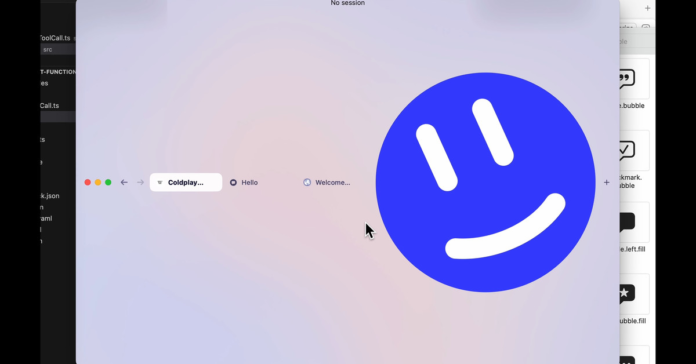Stop me if this sounds familiar: The Browser Company is building a browser that it thinks can make your Internet life a little more organized, a little more useful, and maybe even a little more fun. It has new ideas about tabs and what your browser can do on your behalf.
I’ve heard this story before! But the browser that Browser Company CEO Josh Miller wants to talk about when he calls me Thursday isn’t Arc, the product he and his team have been working on for the past five years. It’s not Arc 2.0 either, even though Miller has been publicly talking about Arc 2.0 for a while. It is a completely new browser. And for Miller and The Browser Company, it’s a chance to get back to building the future of browsers they set out to create in the first place.
Something strange has happened in recent years, Miller says. Arc has grown rapidly – the number of users has quadrupled this year alone – but it has also become clear that Arc will never become a truly mainstream product. It’s too complicated, too different, too difficult to get into. “It’s just too much novelty and change,” Miller says, “to reach the number of people we really want to reach.” User interviews and data have convinced the company that this is a power-user tool, and always will be.
On the other hand, the people who use Arc often love Arc. They love the sidebar, they love spaces and profiles, they love all the customization options. In general, those users have also settled on Arc. Miller says they don’t really want new features, just for their browser to be faster, smoother and more secure. And fair enough!
So The Browser Company was faced with a situation that many companies face: they had a popular product that was never going to be a game-changer. Rather than trying to build the next thing in the current one and risk alienating the people who like it and never reaching the people who don’t, the company just decided to build something new.
Arc doesn’t die, Miller says. He says that over and over again, even after I tell him that the YouTube video the company just released sounds like what companies are saying right before they kill a product. Only Arc won’t change much anymore. It’s getting stability updates and bug fixes, and there’s a team at The Browser Company dedicated to that. “In that sense,” Miller says, “it feels like a complete product.” Most of the team’s energy and time will now be spent starting over.
“Arc was basically a front-end innovation in tab management,” says Miller. “People loved it. It grew like a weed. Then it started getting slow and crashing a lot, and we felt bad, and we had to learn how to make it fast. And we’ve kind of lost sight of the fact that we have to do the operating system part in some ways.”
The plan this time is to build not just a different interface for a browser, but an entirely different kind of browser – one that’s much more proactive, more powerful, more AI-focused, more in line with that original vision. Call it the iPhone of web browsers, or the “Internet computer,” or whatever other metaphor you like. The idea is to turn the browser into an app platform. Miller still wants to do it, and he wants to do it for everyone.
What does that look like? Miller is a bit vague on the details. The new browser, which Miller indicates could launch early next year, is designed to have no switching costs, which means, among other things, it will have horizontal tabs and fewer ideas about organization. The idea is to “make the first 90 seconds effortless” to get more people to switch. And then, slowly, to reveal what this new browser can do.
Miller has a few favorite examples of how a browser can help you get things done that he mentioned to me Decoderand elsewhere in recent months. There’s the teacher who spends hours copying and pasting data between corporate apps; the Shopify sellers who spend too much time looking up order numbers and then pasting them into customer support emails. Those are the kinds of things that a browser, with access to all your web apps and browsing data, could do on your behalf. And with AI tools like Anthropic’s new Computing feature, things like that are starting to become automated and possible.
Designing a browser that is both accessible to everyone and something completely new won’t be easy. The Browser Company already tried it once and ended up here. But Miller feels good that he’s built a good browser over the past five years. Now it’s time to get back to the real work.





